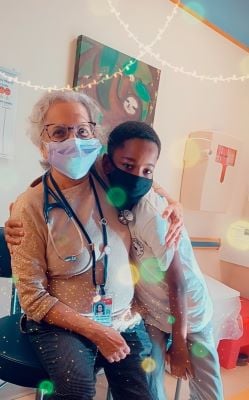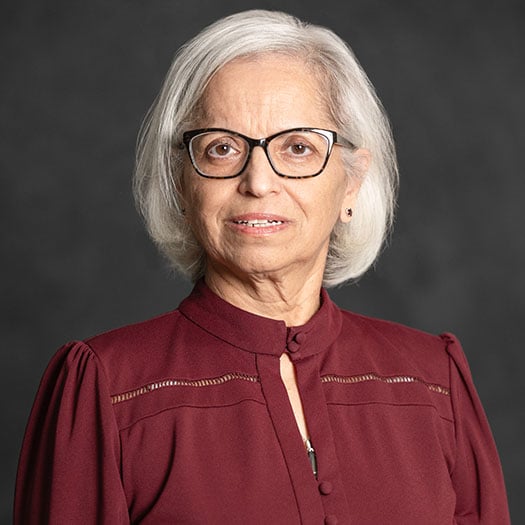Messiah's Story
 In October 2009, Tenia of Washington, D.C., gave birth to twin sons. Though one baby was healthy enough to stay at the hospital with Tenia, her son Messiah was transported to Children’s National Hospital to be treated for prune belly syndrome, a rare condition where the abdominal muscles are weak or absent. Messiah was born with other complications including underdeveloped kidneys which doctors told Tenia would eventually lead to end-stage kidney failure.
In October 2009, Tenia of Washington, D.C., gave birth to twin sons. Though one baby was healthy enough to stay at the hospital with Tenia, her son Messiah was transported to Children’s National Hospital to be treated for prune belly syndrome, a rare condition where the abdominal muscles are weak or absent. Messiah was born with other complications including underdeveloped kidneys which doctors told Tenia would eventually lead to end-stage kidney failure.
“It was hard news to receive, but I knew the doctors were taking care of my baby and I always felt confident that they would continue to help him,” she said. Asha Moudgil, M.D., pediatric nephrologist and medical director of the Children’s National Kidney Transplantation team, began seeing Messiah when he was a patient in the neonatal intensive care unit (NICU). She continued to monitor Messiah’s kidneys closely over the next twelve years.
Better Transplant Outcomes through Long-Term Planning and Close Follow up
“Our team monitors kidney function closely and makes plans well ahead of time because we do not want our patients to get sick with symptoms of kidney failure,” she said. “We know patients, especially those diagnosed with kidney disease at birth, often require multiple transplants during their lifetime. These children have better outcomes if they are able to receive a kidney transplant prior to having to go on dialysis, a common treatment for kidney failure that removes waste and excess fluid from the blood but can have side effects. Patients also have better results when they receive a kidney from a living donor, instead of having to wait on the list for a deceased donor kidney. Our multidisciplinary team, which includes nephrologists, nurse practitioners, nurse coordinators, social workers, a nutritionist, and a psychologist, provides careful planning ahead of transplant and close follow up after transplant to extend the life of each transplant.”
In late 2021, when Dr. Moudgil told Tenia that Messiah’s kidney function was deteriorating and he would require a kidney donor, Tenia was already prepared to donate a kidney to her son. In fact, she had been tested three years earlier and discovered that she was a good donor for him.
“The decision was not hard. I did not have to think twice,” Tenia said. “Messiah is my child and I am going to do everything possible for him. It was an awesome feeling knowing I could help him.” On January 5, 2022, both Tenia and Messiah underwent surgery just five miles across town from each other in Washington, D.C. Through a unique partnership between Children’s National and the MedStar Georgetown University Hospital Transplant Institute. Tenia was evaluated and operated on at Georgetown Hospital, while Messiah received care close by at Children’s National. The partnership between the two transplant institutions provides kidney donors and recipients with unparalleled care throughout the entire transplantation process.
A Powerhouse Partnership in Kidney Transplantation
 “This is a very unique partnership between two high-volume centers known for strong transplant programs,” Dr. Moudgil said. “Together, we can take advantage of our combined experience and give patients the best care possible.” The MedStar Georgetown University Hospital offers services to donors including the opportunity to participate in national kidney exchange programs to search for donors who are incompatible with their recipients or find better matched donors. The MedStar Georgetown Histocompatibility Laboratory offers pre- and post-transplant immune assessment needed for successful outcomes for transplant recipients. Children’s National provides the entire continuum of care for recipients with experts in every specialty, including nephrology, urology, genetics, radiology, psychology, child life and more. Jennifer Verbesey, M.D., serves across both institutions — she is the surgical director of Pediatric Kidney Transplantation at Children’s National and is also a surgeon and director of the Living Donor Kidney Transplant Program at the MedStar Georgetown Transplant Institute.
“This is a very unique partnership between two high-volume centers known for strong transplant programs,” Dr. Moudgil said. “Together, we can take advantage of our combined experience and give patients the best care possible.” The MedStar Georgetown University Hospital offers services to donors including the opportunity to participate in national kidney exchange programs to search for donors who are incompatible with their recipients or find better matched donors. The MedStar Georgetown Histocompatibility Laboratory offers pre- and post-transplant immune assessment needed for successful outcomes for transplant recipients. Children’s National provides the entire continuum of care for recipients with experts in every specialty, including nephrology, urology, genetics, radiology, psychology, child life and more. Jennifer Verbesey, M.D., serves across both institutions — she is the surgical director of Pediatric Kidney Transplantation at Children’s National and is also a surgeon and director of the Living Donor Kidney Transplant Program at the MedStar Georgetown Transplant Institute.
Dedicated to Quality Patient Care
“Our large, expert team is dedicated to quality patient care,” Dr. Moudgil said. “We all want to give our best to these children, and families can sense this. It builds a trusting relationship.” Tenia and Messiah agree.
“I consider Dr. Moudgil part of my family because she has done a lot for me,” Messiah said. Since his transplant, Messiah is the healthiest he has ever been. He trusts and follows his care team’s guidance closely and is gaining strength and weight, playing sports, and made Dean’s list at school. Before his transplant, he could not eat dairy, but now he happily eats his favorite foods including pizza and ice cream. He said he is thankful to Dr. Moudgil and the transplantation team at Children’s National, and especially thankful to his mom for giving him another chance at life.
“My mom inspires me to be my best because when she sets her mind on something, she finishes it and does her best,” Messiah said. “She talks about how she would go to the moon and back for us and do anything for us, and she has. I feel blessed to have my mom.”

